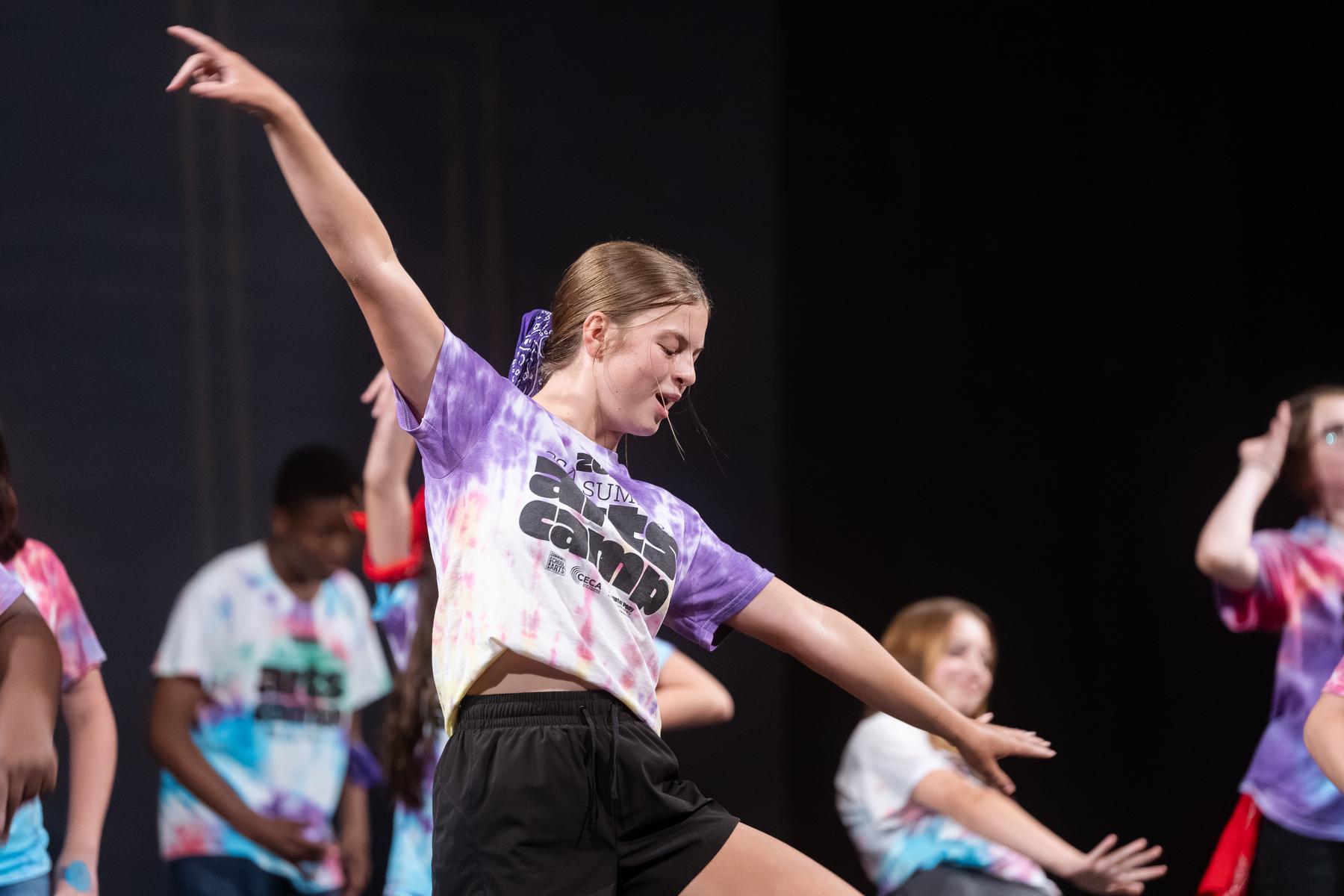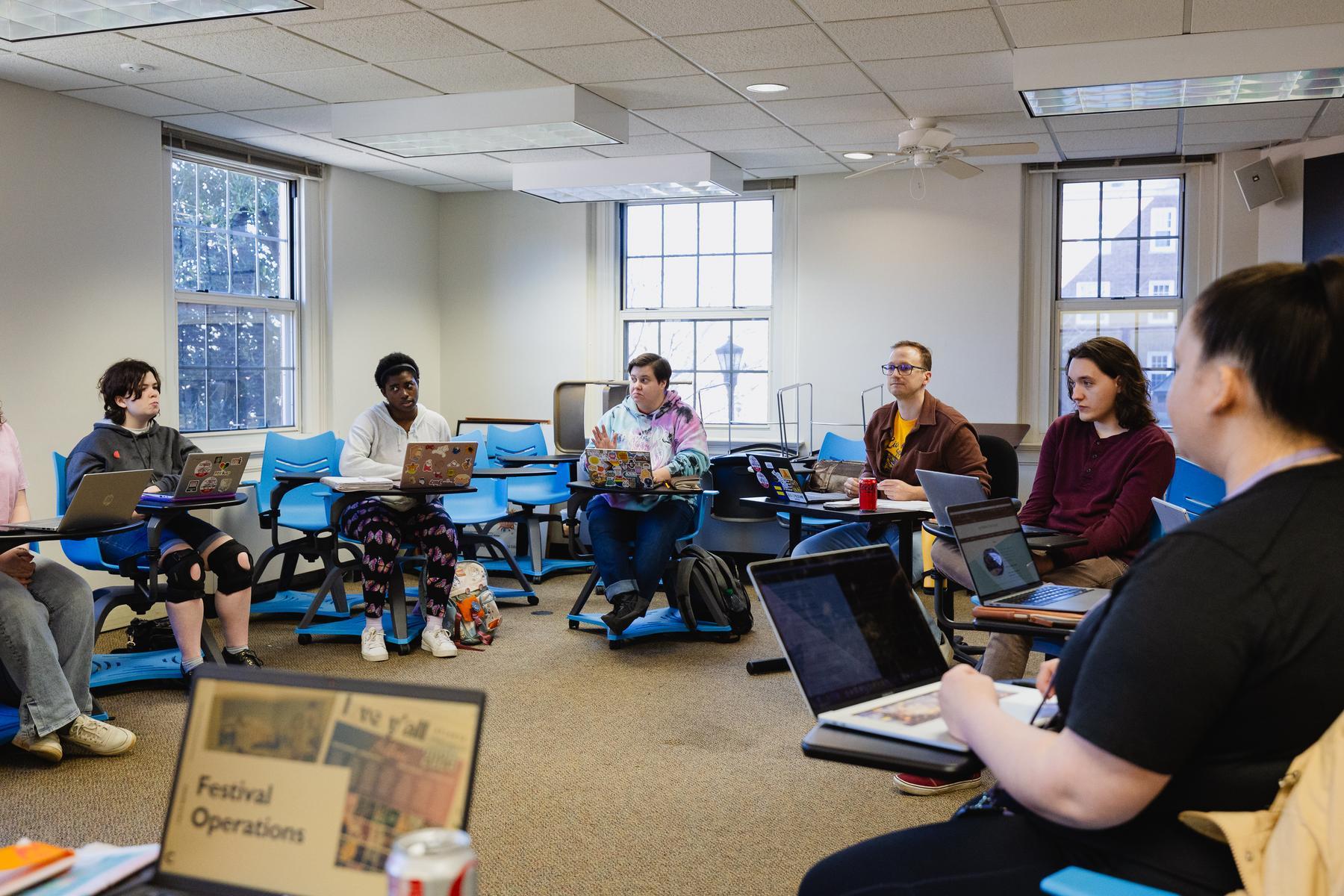Two recent Austin Peay graduates win National Science Foundation fellowships
(Posted April 25, 2018)
Two recently graduated Austin Peay science students have earned National Science Foundation graduate research fellowships.
The recipients are:
- Josh Kraft – who graduated in 2017 with a bachelor’s degree in biology and is pursuing his Ph.D. in plant ecology and evolution at Purdue University.
- Deborah Gulledge – who graduated in 2018 with a bachelor’s degree in physics and is pursuing her Ph.D. in astronomy at Georgia State University (GSU).
The National Science Foundation (NSF) Graduate Research Fellowship Program recognizes and supports outstanding graduate students in science, technology, engineering and mathematics who are pursuing research-based master’s and doctoral degrees, according to the program’s website. The program provides three years of significant financial and tuition support.
“One of the best parts about being awarded the fellowship, though, was the confidence it’s given me,” Gulledge, who has dreamt of becoming an astronaut since she was a child, said. “Winning this fellowship was the reassurance I didn’t know I needed – I finally feel like I belong in science, like I am where I am meant to be in life, that I deserve to be here, and that maybe my dreams aren’t so unrealistic after all.
“I hope that my research as an NSF Fellow will give me the best chance possible at one day making it to the stars.”
The fellowships are difficult to win. NSF awards only 2,000 fellowships to more 12,000 applicants each year.
Here’s more about Gulledge and Kraft:
JOSH KRAFT

- What was your reaction to getting the fellowship? “Complete shock. It took a couple of days for me to fully realize that I was awarded a fellowship and what it means for both my research and my future.”
- What are you doing now? “I am currently enrolled in a Ph.D. program at Purdue University in the botany department studying plant ecology and evolution.”
- Tell us about your research. “As an NSF graduate research fellow, I will be studying how epistasis, gene on gene interactions, influences local adaptation and the effects of epistasis on future adaptation to novel environments. My research has a focus on the historical effects of epistasis on adaptation as well as how global climate change will impact historically adapted populations in new environments, and if epistasis may be a way for these populations to persist in novel environments.”
- What’s your APSU connection? “APSU was like a second home to me. I loved the people I met and really began to grow my interests as a researcher there. I felt supported by the faculty and staff and am very much grateful for the time I spent there and the memories I made at APSU.”
DEBORAH GULLEDGE
- What was your reaction to getting the fellowship? “I am still shocked! I have never been so excited about anything in my entire life. I am so honored to have been awarded the fellowship, and I'm incredibly thankful to all my professors at both APSU and GSU for helping me with my application and for always supporting and encouraging me.”
- What are you up to now? “I am currently pursuing my Ph.D. in astronomy at GSU, working with Dr. Stuart Jefferies. My primary interests are in planetary science and instrumentation, and I’m so thankful to get the chance to work in both of these areas. I am especially excited because I landed a NASA internship this summer, where I get to develop my skills further during a 10-week internship at NASA Jet Propulsion Laboratory this summer, working on testing and characterization of a newly developed adaptive optics system.”
- Tell us about your research. “As an NSF graduate research fellow, the title of my dissertation research is ‘Taking the Pulse of Jupiter and Saturn from Antarctica.’ I aim to answer the question “how did our Solar System form?” The only way to answer this is determining whether Jupiter and Saturn have solid cores or are gaseous all the way throughout. We are attempting to use seismology to map out their internal structure, similarly to how scientists previously mapped out the internal structure of the sun. This has been attempted before but everyone has been unsuccessful, so we are taking a giant leap to collect the best data possible – in addition to helping build our telescope and working on data reduction and analysis. I am going to winter-over at the South Pole in 2021 to observe Jupiter and Saturn over nine months in total darkness in the harshest, most isolated environment on planet Earth. We believe this will provide the highest quality data possible and will give us the best chance at being the very first to map out the internal structure of our Jovian planets!”
- What’s your APSU connection? “My first introduction to APSU was … when I attended APSU's Governor’s School for
Computational Physics. I was unsure what I wanted to study before this, but Gov School
sparked my interest in physics, so I applied to APSU to continue studying it. My time
at APSU was so valuable, and I’m thankful every day that Gov School inspired me to
continue my education there! I had so many incredible research and observing opportunities,
and those provided me with the skills I needed to thrive in my career.”
TO LEARN MORE
- For more about the NSF Graduate Research Fellowship Program, go to nsfgrfp.org.
- To learn about the Austin Peay Department of Biology, go to apsu.edu/biology.
- To see more about the Austin Peay Department of Physics, Engineering and Astronomy,
visit apsu.edu/physics.
News Feed
View All News Austin Peay's CSA Summer Arts Camp opens for registration
Austin Peay's CSA Summer Arts Camp opens for registrationThe Community School of the Arts is hosting a space-themed Summer Arts Camp with two weeklong sessions in July, and families can register now through May 23.
Read More APSU hosting inaugural Zone 3 Writers' Festival from April 10-12
APSU hosting inaugural Zone 3 Writers' Festival from April 10-12Austin Peay State University will host its inaugural Zone 3 Writers' Festival featuring readings, panels, and workshops from April 10-12, welcoming writers from across the country.
Read More Austin Peay State University partners with NASCAR's Michael Waltrip on signature light beer
Austin Peay State University partners with NASCAR's Michael Waltrip on signature light beerAPSU unveiled the Governor's Golden Ale, a signature light beer developed in partnership with Michael Waltrip Brewing Co. and Shelby's Trio, during a community meet-and-greet at Joe's Garage.
Read More
